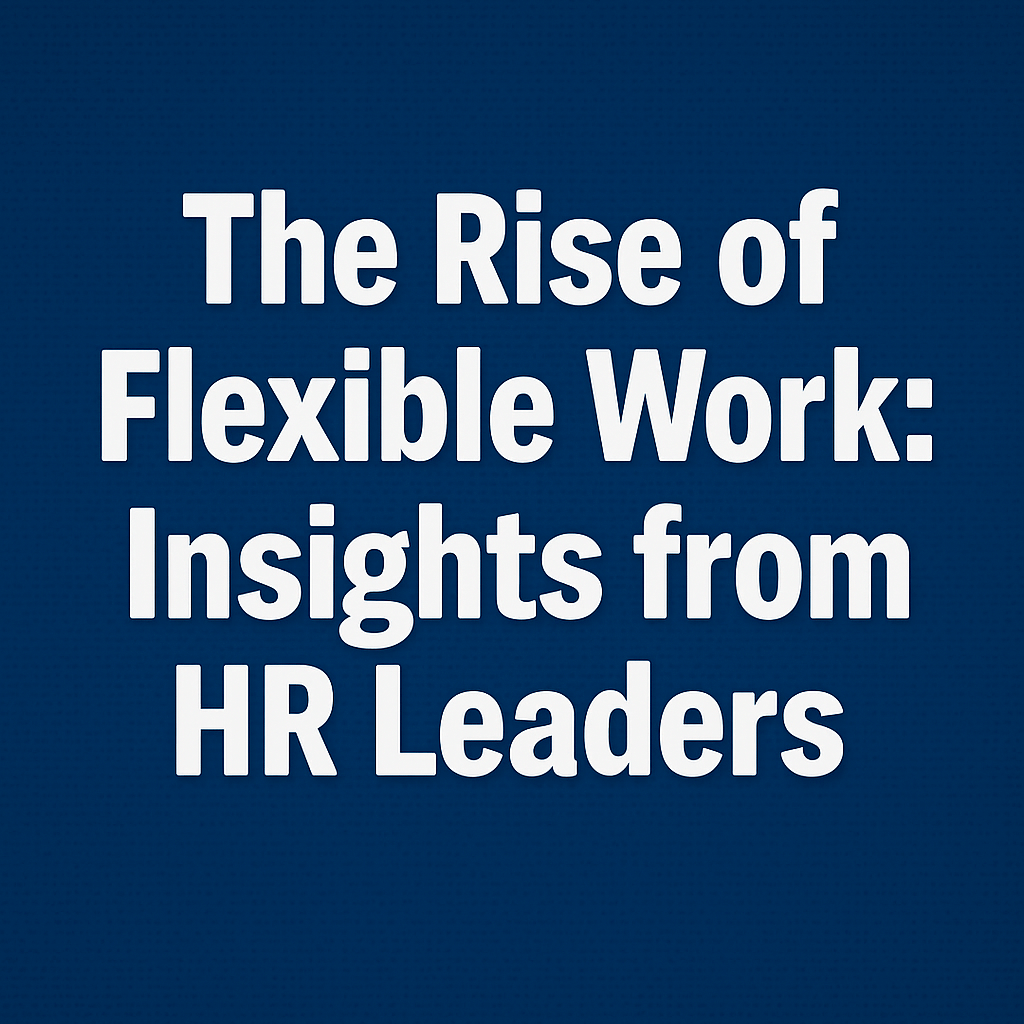The Rise of Flexible Work: Insights from HR Leaders

Good morning!
As businesses continue to navigate a post-pandemic world, the challenge of bringing workers back to the office has become a hotly contested issue. While many CEOs advocate for the benefits of in-person collaboration—citing enhanced connection and productivity—Chief Human Resource Officers (CHROs) are increasingly diverging from this narrative. A recent survey from International Workplace Group (IWG) illustrates this shift, revealing that most CHROs strongly support flexible work options.
Insights from the IWG Report
The IWG report indicates compelling statistics: approximately 81% of CHROs believe that eliminating long commutes positively influences worker performance. Additionally, 67% assert that reduced commuting times lead to improved employee wellbeing. These insights provide a key perspective in understanding the evolving demands of the modern workforce.
The Importance of Flexibility
Employers must also heed the potential downsides of reducing workplace flexibility. A staggering 83% of CHROs warned that cuts in flexible work policies could harm their companies, particularly in attracting new talent. Furthermore, around 86% indicated that flexible work arrangements are among the most requested benefits by job candidates today.
Employee Demand for Flexibility
Workplace surveys have consistently underscored the value that employees place on remote work options. An enlightening study conducted by Mercer Marsh Benefits found that flexibility in work arrangements ranked as the number one desired benefit across all generations—outpacing even medical benefits and opportunities for skill development.
Shifting Power Dynamics
The evolving role of CHROs is noteworthy, as their influence within organizations grows. According to the IWG study, 89% of HR leaders in the U.S. report having more say than ever in corporate decision-making. This shift presents an opportunity for CHROs to advocate for their preferences regarding flexible policies, potentially leading to significant cultural transformations within their companies.
Expert Opinions on Flexible Work Policies
Mark Dixon, CEO of IWG, emphasizes the advantages of adopting flexible working models, stating, “By embracing flexible working models, companies can unlock greater productivity, attract and retain top talent, and ultimately build a happier workforce.” He positions CHROs as pivotal players in this transformation, tasked with reshaping company culture to prioritize employee satisfaction.
Challenges and Considerations
Despite the push for flexible work options, CHROs face challenges that stem from their organizational hierarchy. Their ability to enact change relies heavily on their relationships with CEOs and other senior executives. For some, this creates a dichotomy where CHROs must balance the desires of employees with the strategic vision set forth by higher management.
What Lies Ahead for Workplace Flexibility?
As the economic landscape evolves, so too will the expectations of employees regarding workplace flexibility. The increasing prevalence of technology, including AI-driven work tools, has further accelerated the shift toward remote setups, with many organizations adopting hybrid models to blend in-person and remote work.
Conclusion
The future of work will likely be dictated by the principles of flexibility and work-life balance. With a firm backing from CHROs and explicit employee demand, companies that embrace these changing dynamics may find themselves better positioned in the competitive talent landscape.
In summary, flexible work arrangements are no longer just a perk but a fundamental expectation among the workforce—a trend that CHROs are increasingly recognizing and championing.